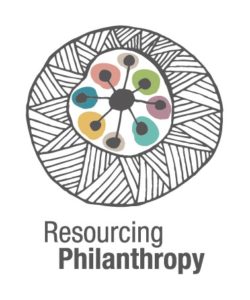What Does Collaborative Donor Practice Look Like?
Resource type: News
Resourcing Philanthropy |
 By Gillian Mitchell, Gabrielle Ritchie and Melanie Judge
By Gillian Mitchell, Gabrielle Ritchie and Melanie Judge
Collaboration is a non-profit and funding term that is increasingly used to refer to good organisational and donor practice.
“Collaboration teaches us to leave our strategies at the door and to come together collectively to decide what’s best for the sector.”
– Nicolette Naylor, Regional Representative, Ford Foundation, Southern Africa
Collaborations are brought about when donors enter into partnerships that benefit a cause or community more effectively through working together than separately. These collaborations are responsive when they are sensitive to changes in the environment and in the circumstances of beneficiaries, and aim to navigate these shifts to achieve the best possible outcomes.

Collaboration is not simply about working with other funding partners or grantee partners. It is in the how, in the nature of a partnership practice, that collaboration is put into effect. Strong collaborations have the potential to be greater than the sum of their parts, and call for a meeting of minds, values and practices around common objectives and vision.
“We must find ways to rise above the silos in which we have too often organised ourselves, and find new ways of working together.”
– Gara LaMarche, former President and CEO, The Atlantic Philanthropies
Responsive partnerships require grantmakers, grantees and beneficiaries to work together to transform the landscape in which, and the relationships through which, they work. This requires partners to display flexibility when negotiating the gaps between a programme or project idea, its operationalisation in a given context, and its successful impact.
Responsive collaboration can lead to:
- Philanthropic practices that adhere to principles of transparency, accountability, and responsible grantmaking
- Philanthropists being strategic and clear on goals and areas of investment interest
- More equitable relationships between grantmakers and grantees
- Donor attentiveness to local conditions and to the needs and priorities of grantee organisations
- Partners being open to setting aside pre-conceived notions of process, outcomes, success and evaluation, to jointly determine context-appropriate understandings of the operating environment and the impact sought.
Collaboration in the world of donor funding, while not always formal, speaks to donor intent, strategy, approach and practice. Responsive collaboration in particularly, requires a willingness to be open about agendas and transparent about vested interests. It relies on the ability to engage with the partners in the collaboration in equitable ways. This calls on donors to recognise the extent to which grantees are best placed to understand the context and thus arrive at the most appropriate modes of action.
Responsive Collaboration also shares experiences around explores three kinds of collaborative practices:
- the practice of convening (amongst donors, amongst grantees in a sector, and amongst grantees of a particular funder)
- collaborative funding of various kinds where donors pool funding resources to achieve greater impact than if they funded a cause or issue separately
- the preservation of memory and sharing of knowledge
Resourcing Philanthropy includes information, case studies on types of donor practice, and short films on specific topics such as donor collaboration.
This article is an edited extract from Responsive Collaboration: setting the terms of engagement, a section of Resourcing Philanthropy exploring the terms of collaboration and various kinds of collaborative practices in the South African funding environment between donors, between donors and grantees, and between grantees.
Read more in this series:
- Margin to Centre: How philanthropy can help guarantee constitutional rights in South Africa
- Risk with Vision: Placing Informed ‘Big Bets’
- Here’s Why Funders Should Support Advocacy
 Resourcing Philanthropy is a new online platform that profiles philanthropic giving through the sharing of information, advice, tactics, tools and insights from grantmakers, non-profit leaders and philanthropists in South Africa.
Resourcing Philanthropy is a new online platform that profiles philanthropic giving through the sharing of information, advice, tactics, tools and insights from grantmakers, non-profit leaders and philanthropists in South Africa.
Drawing on the grantmaking experience and impact of The Atlantic Philanthropies, Resourcing Philanthropy is dedicated to growing the funding sector in South Africa by showcasing grantmaking approaches that are proven to work, in particular those that seek to advance human rights and social justice.
Resourcing Philanthropy was funded by The Atlantic Philanthropies and developed by Gillian Mitchell, Gabrielle Ritchie and Melanie Judge of eMRJ — an independent association of consultants that provides services and support to NPOs and donors.